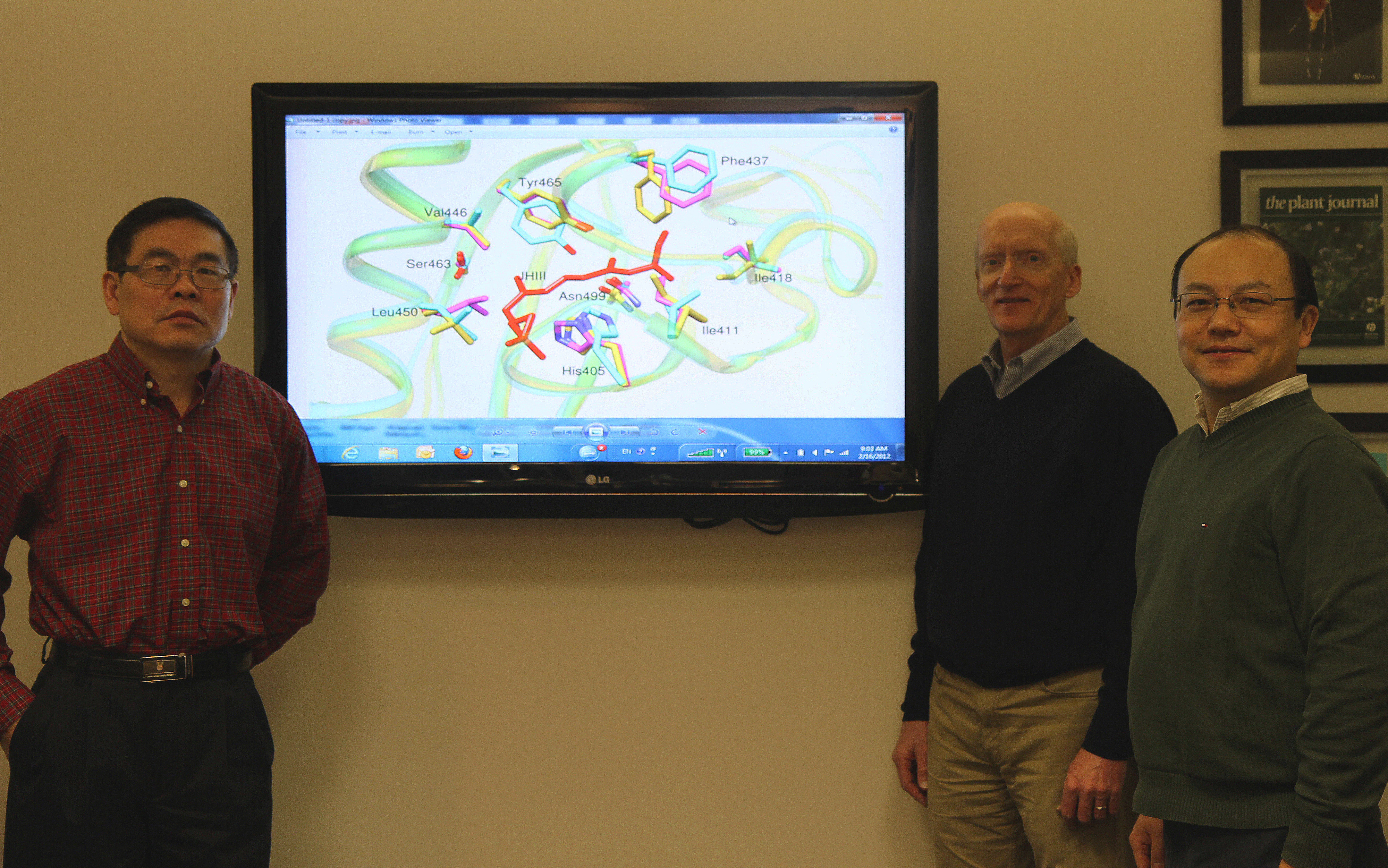Scientists awarded grant for mosquito egg production research

A female mosquito’s bite isn’t just for spite -- she needs blood from vertebrate animals for egg development. Female mosquitoes are the only sex known to bite. However, feedings upon multiple hosts has led to the transmission of deadly disease pathogens, including malaria parasites and dengue virus.
With this in mind, Virginia Tech biochemists are working to elucidate the molecular mechanisms that regulate mosquito egg production, in order to identify target molecules that can be used for mosquito control. Jinsong Zhu, assistant professor of biochemistry, and collaborators David Bevan, associate professor of biochemistry, and Jianyong Li, professor of biochemistry, have received a four year $1.35 million grant from the National Institutes of Health to advance study in this area.
The scientists, all affiliated faculty members with the Fralin Life Science Institute, have already made significant progress in this research field, and published findings in the Proceedings of the National Academy of Sciences in early 2011.
According to Zhu, two hormones are needed for mosquito egg production: ecdysone and juvenile hormone. Both hormones must be present in the right dosage during the right phase of development, and must work collaboratively to ensure successful egg development. While much research has been devoted to ecdysone, little is currently known about the action of juvenile hormone. Zhu hopes to change that by studying the juvenile hormone signaling pathway.
"We have identified a receptor for juvenile hormone in the mosquito," Zhu said. "The receptor is clearly required for the juvenile hormone responses in adult female mosquitoes. But we want to know how the receptor is activated by the hormone and how the receptor regulates gene expression."
The research team uses an array of techniques to address the questions from different angles. Bevan’s lab has used homology modeling and molecular docking to identify amino acid residues in the receptor that are required for high affinity binding to juvenile hormone. Zhu is investigating whether the receptor needs a partner to bind to the promoters of juvenile hormone target genes and Li is assisting with crystallization of this receptor protein.
In addition to reproduction, juvenile hormone affects a remarkably broad range of processes in mosquito development and life history, including metamorphosis, behavior, diapause, stress resistance and longevity. While synthetic juvenile hormone mimics are currently used as mosquito larvicides, many have proved ineffective and mosquito resistance to these drugs has been reported in recent years. Understanding the molecular details of juvenile hormone signal transduction could allow biochemists to find chemicals that suppress normal juvenile hormone responses with new mechanisms, reducing mosquito populations and preventing mosquito-borne disease transmission.
"We are unique in that we adopt an interdisciplinary approach, rather than merely a genetic approach," Zhu said. "We take advantage of our collaboration within Virginia Tech’s Vector Borne Disease Research Group and the department of biochemistry. This project is expected to uncover many mechanistic details in juvenile hormone action."




